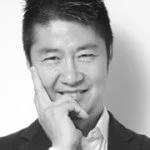Making the Most of the Chinese Tourist Boom (Part 2)
At 20 years of age Lu Dong had already studied on exchange in Japan, worked for the Private banking Department at Goldman Sachs, and completed an MBA course at Stanford University. In 2004, he returned to China and launched two start-ups. He relocated to Japan in 2014. Now, he is about to release the beta version of his new app “Nihon Bishoku” (Japan Foodie) in April 2016.
I’ve heard that you have two E-commerce start-ups in China. Could you tell us about how you launched them?
Lu: When I came back to China from the U.S. I wanted to create new services within China using the experience I gained from studying and working abroad. Although E-commerce has now become extremely common, at that time, Taobao was just starting to get popular and there were no online clothing stores in China. I launched “Beyond Tailors”, an online fashion startup. We were challenged to create a system that customizes and sells original menswear. After that, I made “LA MIU” – the online lingerie shop. I wanted to create a Chinese version of Victoria’s Secret. I built both start-ups and sold them before I moved to Japan in 2014.
Are there big differences between Chinese start-ups and Japanese start-ups?
Lu: We only started developing this app around May last year and launched the company in December 2015 so this is all still very new. However, I already feel that the environment, the culture and the approach to start-ups is very different.The most striking difference is the approach that people have in Japan and China to new products and services. For example, we have a messaging app called WeChat in China. WeChat has 900 million users. You can use this app for payments and even send money to your friends. Many Chinese people are quick to use this function because they think it is interesting and may bring new opportunities. You can say that new services spread quite easily in China. On the other hand, even though you can find similar functions in other popular messenger apps like WeChat, nobody really uses these functions in Japan. When I explain the function to my Japanese friends, most of them look uneasy and say “nobody else is using it”. You can see that Japanese and Chinese people have completely different reactions to the introduction of new services.
What is different about the way Japanese and Chinese think about start-ups?
Lu: I received an MBA from Stanford University before I launched companies in China. I was so shocked that Japanese graduate students have very different paths and goals after graduation. When you look up the alumni database and see the alumni current companies, the title of their jobs and the type of industries, you will find that 50% of Chinese work for start-ups, 40% work for the venture capital, and less than 10% work for an enterprise. On the other hand, almost all Japanese graduate students work for big famous companies. In other words, you can say that Japan’s best talents are living in their “safe zone”. Only a few people are interested in creating new trends and bringing out new ideas.
Wahl & Case helped you build your business in Japan. Please tell us about your experience.
Lu: Without Casey, I can say that I won’t have this business today. Right after I got to Japan, I told him about my business idea. He said to me, “that is an awesome idea! You will want to have a great team for this business.” He gave me great advice and helped me find the perfect co-founders. I learned that people are the most important part of the business. No matter how many wonderful ideas I have, they cannot be realized without the right people. You want to have people you can trust and who have the capabilities to bring the work together.
How did you find your co-founders?
Lu: There are three co-founders including me. Casey introduced one of them to me, and my co-founder introduced someone else. We plan to expand the team with four more members in the near future. Casey found three of them for us.When I was looking for economical office space, Casey provided part of his office for us to use for free, temporarily. He helps us often by giving us ideas on how to improve our business model and also assists us in finding potential clients. He is both my incubator and an important business partner.
Please tell us about your vision for the future.
Lu: I hope to act as a bridge between Tokyo, the world’s best city for food, and Chinese tourists, the world’s largest tourist market with Nihon Bishoku. In the future, I would like to expand this goal to include the rest of the world, not just between Japanese and Chinese people, because countries like China, France, and Thailand also have similar problems. I hope to create a guide for tourists so they can find better restaurants in the best food cities. I would like this app to be an international networking hub and help tourists to better enjoy their time abroad.

